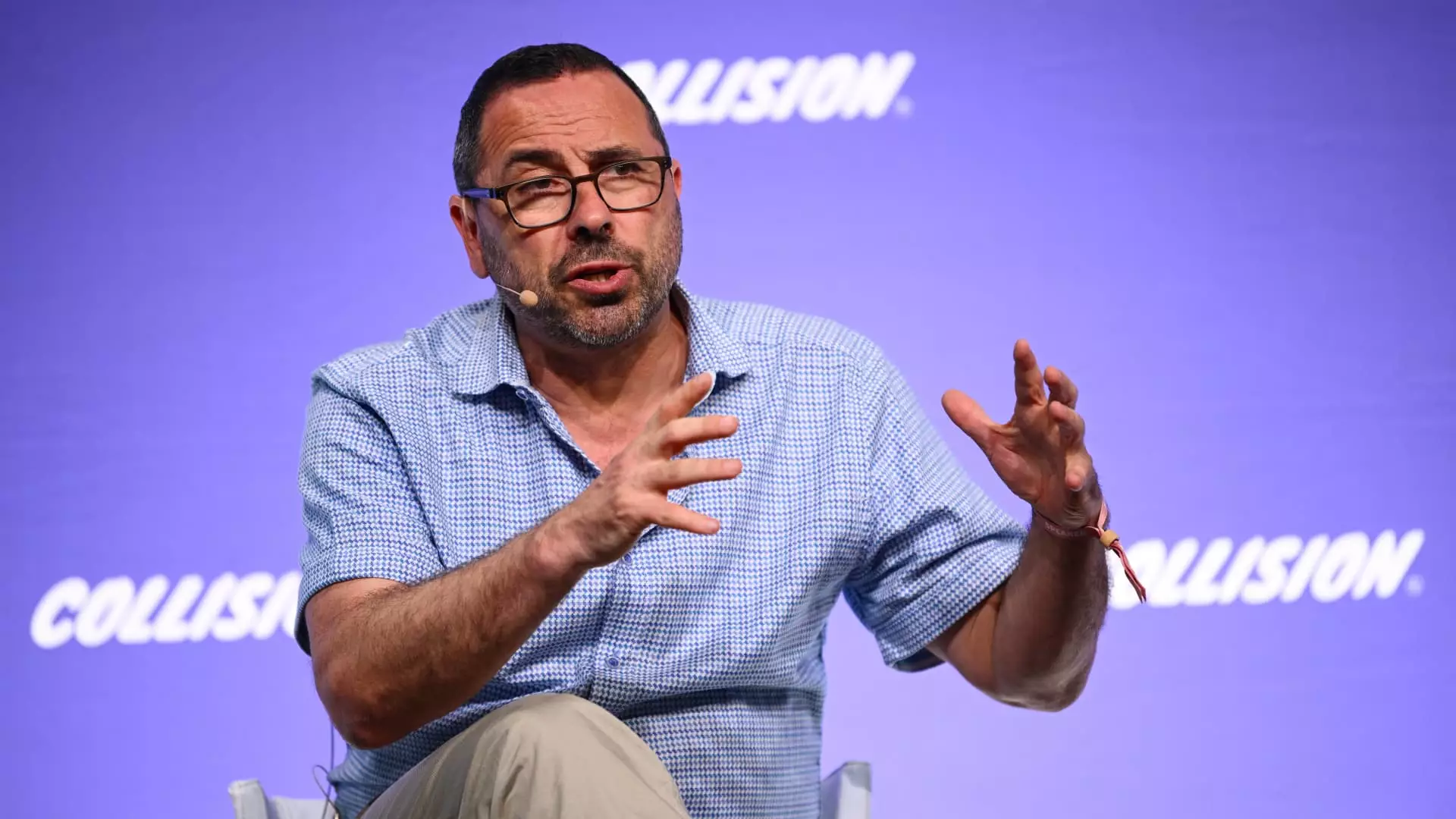The landscape of artificial intelligence (AI) infrastructure has become increasingly competitive and lucrative, particularly marked by the staggering valuation of Nvidia at $3.3 trillion. In an attempt to enter this vibrant market, Cerebras, a chipmaker founded in 2016, has set its sights on becoming the first major venture-backed technology firm to go public in the U.S. since April. However, the road to an initial public offering (IPO) is fraught with complications, particularly due to its overreliance on a single customer and scrutiny from U.S. regulators.
Cerebras gained attention when it introduced its groundbreaking processor in 2019, which it claims outperforms Nvidia’s graphics processing units (GPUs) in training extensive language models. This assertion has been backed up by impressive financial results, with sales surging more than threefold to $78.7 million in 2023, and projected revenues for the first half of 2024 reaching $136.4 million. With backers aiming for an IPO valuation that could potentially double its 2021 valuation of $4 billion, the pressure is on to capitalize on the growing investor fervor for AI technology.
Nevertheless, Cerebras faces significant challenges that raise concerns about its sustainability and customer diversification. A staggering 87% of the company’s revenue in the first half of the year was attributed to just one customer—G42, a powerful entity based in the United Arab Emirates (UAE). This dependence not only creates risks for its financial health but could also deter potential investors wary of customer concentration.
Scrutinizing Customer Dependencies
The glaring reliance on G42, which is closely tied to Microsoft and accounts for a monumental $1.43 billion purchase agreement, poses a formidable challenge. Furthermore, this investment relationship is compounded by the fact that G42 is also a key stakeholder in Cerebras. Such entanglements raise significant flags among investors and regulators alike, particularly as Cerebras awaits approval from the Treasury Department’s Committee on Foreign Investment in the U.S. (CFIUS) regarding G42’s increased stake. Any delay or complications from CFIUS could put a damper on Cerebras’ ambitious IPO plans.
Adding to the unease is G42’s historical connections with the Chinese market, which has drawn scrutiny from U.S. lawmakers concerned about potential national security implications. Previous ties of G42 with Chinese military and state-controlled enterprises have provoked significant caution from government agencies. Despite G42’s claims of having divested from Chinese holdings, the prevailing suspicion might linger, affecting Cerebras’ ability to gain the confidence of investors.
In what would traditionally be a golden moment for tech IPOs, Cerebras finds itself without the backing of major investment banks known for underwriting successful technology offerings. Heavyweights like Goldman Sachs, Morgan Stanley, and JPMorgan have opted to step back from the deal, as they consider risks related to customer concentration and foreign investment implications. Instead, the IPO is being steered by Citigroup and Barclays, firms with experience but lacking the prestige associated with leading tech IPOs.
This lack of major investment bank support raises additional concerns about Cerebras’ potential market reception. Compounding these issues is the involvement of BDO, a firm that does not belong to the esteemed Big Four accounting houses, raising further questions regarding financial credibility and transparency.
Looking Ahead: The AI Landscape and Growth Potential
Despite these complications, the insatiable demand for AI infrastructure provides a glimmer of hope for Cerebras. The AI market is booming, with Mizuho Securities estimating that Nvidia dominates approximately 95% of the AI training and inference chip market. Even as Cerebras reported a net loss of nearly $51 million in its recent quarter, the prospects tied to its innovative technology, particularly the WSE-3 chip, remain enticing. Prominent voices in the investment community are buoyed by the potential upside of Cerebras’ offerings, viewing it as a long-term play in the growing AI infrastructure sector.
Retail investors, like Jim Fitch, are particularly optimistic about the company’s forward trajectory, believing that the risks associated with investing in Cerebras are outweighed by the potential rewards. With interest in AI leading to a flurry of investments, Cerebras, facing its unique set of hurdles, must navigate these turbulent waters with care, as it embarks on the journey toward becoming a publicly traded entity.
Cerebras’ future hinges not only on its innovative technologies and its ability to capitalize on the AI boom, but also on its capacity to diversify its client base and reassure investors regarding its national security compliance. The outcome of its impending IPO will not just reflect the company’s immediate prospects but also provide a window into the complexities of operating in today’s interconnected and scrutinized investment landscape.

